Blockchain empowers transformation across multiple industries — thanks to inherent qualities like immutability and decentralization. So, which companies are leading the pack? Who should we keep an eye on in 2025? In this guide, we explore 11 top crypto companies that are not just riding the wave of change but are also steering it.
Crypto and blockchain adoption trends in 2025
While the rate of cryptocurrency adoption might not have reached the heights some analysts and enthusiasts predicted, it remains reasonably high considering the various regulatory hurdles and market challenges. This moderate yet significant uptake highlights the resilience of the crypto market in the face of external pressures.
A quick look at the most recent Chainalysis Crypto Adoption Index, which offers a detailed look at global adoption trends, gives us a clearer picture of where things stand.

Chainalysis scores countries on three metrics: total crypto activity, trading activity of non-professional users, and peer-to-peer exchange trade volume. The weight is calculated by purchasing power per capita. Here’s a summary of 2025 insights.
A look at regional performance
- Central & Southern Asia and Oceania (CSAO) dominance: The CSAO region stands out in the Global Crypto Adoption Index, with countries like India, Vietnam, and the Philippines securing top positions. This highlights the significant role of this region in the global crypto landscape.
- Top performers: India excels across nearly all measured categories to lead the Index, followed by Nigeria and Vietnam, with respective strengths in peer-to-peer trades and retail decentralized finance uptake.
- Diverse performances: Other top countries showcase varied performances across criteria, signaling the diverse nature of cryptocurrency adoption worldwide.
Analysis of global crypto adoption
- Overall decline in adoption: The report notes a global decline in grassroots crypto adoption. This is evident from the aggregated index scores of 154 countries.
- Recovery post-FTX collapse: There’s been a recovery in crypto adoption since late 2022, coinciding with the fallout from the FTX collapse. However, the level of adoption has yet to reach its peak, as observed in previous years.
Focus on lower-middle-income (LMI) countries
- World Bank income classifications: The report uses the World Bank’s income categories to analyze crypto adoption trends. It highlights the significant role of LMI countries in the crypto landscape.
- LMI countries outperforming others: LMI countries, which include economies like India, Nigeria, and Ukraine, have seen a resilient recovery in crypto adoption. These countries have defied the global downtrend by surpassing their previous highs.
- Significance of LMI countries: With 40% of the global population, these countries are key to the future trajectory of crypto adoption. Their ongoing economic development and growing industries make them increasingly important players in the crypto space.
Implications and future predictions
- Potential growth in emerging economies: The strong performance of LMI countries indicates that emerging economies could be the driving force behind future crypto adoption.
- Institutional vs. grassroots adoption: There is a contrast between the institutional adoption in high-income countries and the grassroots-level adoption in LMI countries. This indicates a diverse range of motivations and use cases for crypto across different economic contexts.
- Prospects for crypto: The report suggests a promising future for cryptocurrency, with potential for both individual-level adoption in LMI countries and institutional-level adoption in high-income regions.
Now that we have gained some insight into the latest global crypto adoption trends let’s examine the major companies spearheading the use of crypto and blockchain.
Top 12 crypto companies to watch out in 2025
Industry-leading companies include financial technology companies, cryptocurrency miners, manufacturers of blockchain technology, etc. Let’s take a look at the 11 top crypto companies that are playing a significant role in the market.
Our methodology
We carefully examined publicly available financial data to evaluate various companies engaged in blockchain technology. Our research covered their crypto and blockchain-related investments, the extent of their operations, and any notable actions they’ve recently undertaken. The culmination of this process was to organize these companies by their market value as of 2025
1. Coinbase
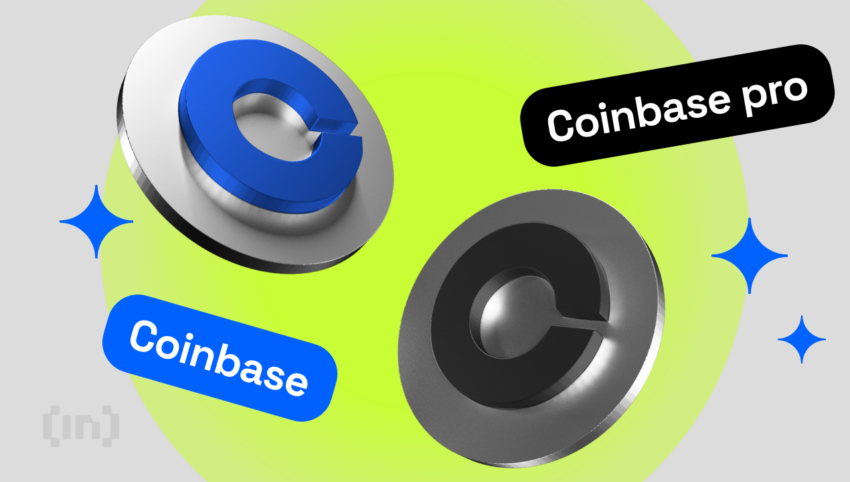
Coinbase is a global centralized exchange and provider of financial infrastructure, including transaction services and technology-based products designed for the crypto economy. The company’s platform enables its retail users to invest, spend, save, earn, and use cryptocurrencies. The platform also provides institutions with a deep pool of liquidity for transacting in crypto-assets and enables crypto ecosystem partners to build crypto-based applications, as well as securely accept crypto assets as payment.
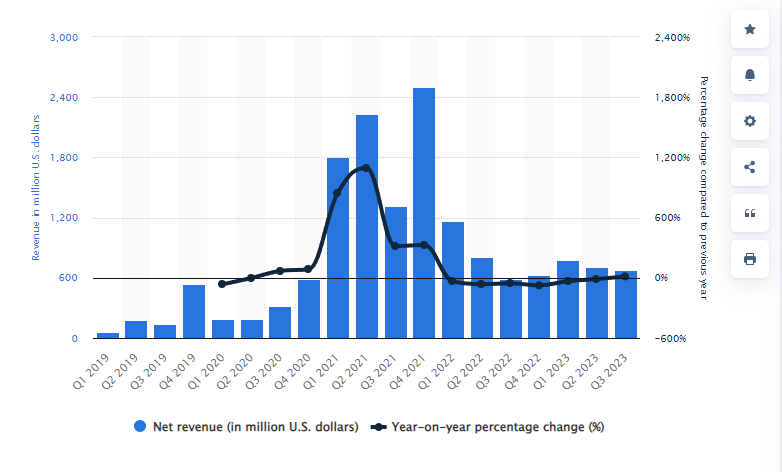
Coinbase went public in Apr. 2021. As of Q3 2023, the company’s quarterly revenue stood at nearly $675 million, up 14% year-on-year.
2. Chainalysis
Chainalysis helps banks, businesses, and governments track and investigate blockchain activity. Cryptocurrencies have become a mainstream way to transfer value. However, because digital assets obscure real-world identities, criminals have used this technology to avoid detection. Proceeds from darknet markets or hacked/stolen funds are often laundered through legitimate crypto exchanges or Bitcoin mixing services.
To ensure that cryptocurrencies are used for good, institutions need the ability to see what’s happening on the blockchains and identify/differentiate the bad actors from the lawful ones. This is where Chainalysis plays a central role, providing cryptocurrency investigation and compliance software to leading institutions in this ecosystem.
Chainalysis raised $536.6M from 11 founding rounds up to Oct 2022, according to Crunchbase. Being a privately held company, Chainalysis doesn’t usually publicly disclose its financial information, including market capitalization and revenue.
3. Gemini
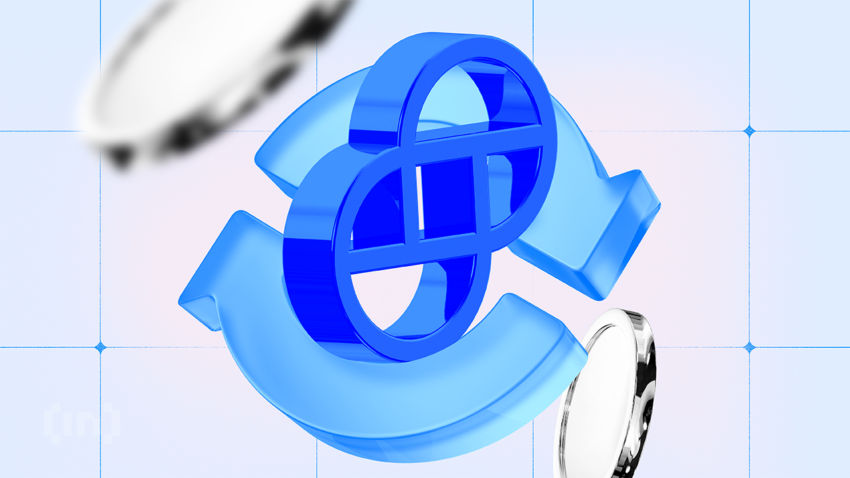
At Gemini, no job is too small; no project is too big — the company endeavors to build the future of money. Gemini is a licensed digital asset exchange and custodian.
Founded by the Winklevoss twins, the prominent cryptocurrency exchange is known for its user-friendly interface and decent security track record. It offers trading in various cryptocurrencies and provides a platform for both individual and institutional investors. Gemini prioritizes regulatory compliance, making it a trusted choice in the crypto community. The exchange also features advanced trading options and a wallet service, which serves a wide range of crypto users. Gemini’s commitment to security and regulatory adherence and innovative features make it a significant player in the cryptocurrency exchange market.
4. Galaxy Digital
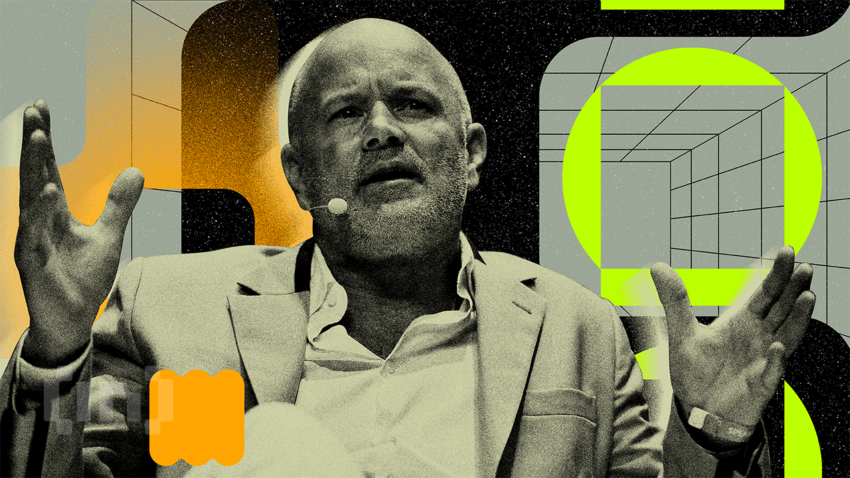
Galaxy Digital is a tech-driven financial service and investment firm that provides institutions and direct clients with a full suite of financial solutions. The company operates five synergistic business lines: trading, asset management, principal investments, investment banking, and mining.
The CEO and founder is Mike Novogratz, headquartered in New York City. The company is known for bridging the gap between the cryptocurrency ecosystem and institutional investors. Galaxy Digital’s services cater to various clients, from individual investors to large institutions looking to tap into the rapidly growing digital asset space.
The company is listed on the Toronto Stock Exchange’s TSX Venture Exchange with the symbol GLXY.
In Q3 2023, Galaxy Digital Holdings reported equity capital of $1.5 billion and a net loss of $94 million. By the end of October, equity capital rose to approximately $1.6 billion, and the company experienced an income before tax of around $124 million. Their assets under management increased to $3.9 billion, marking a $1.4 billion rise quarter-over-quarter.
5. OpenSea
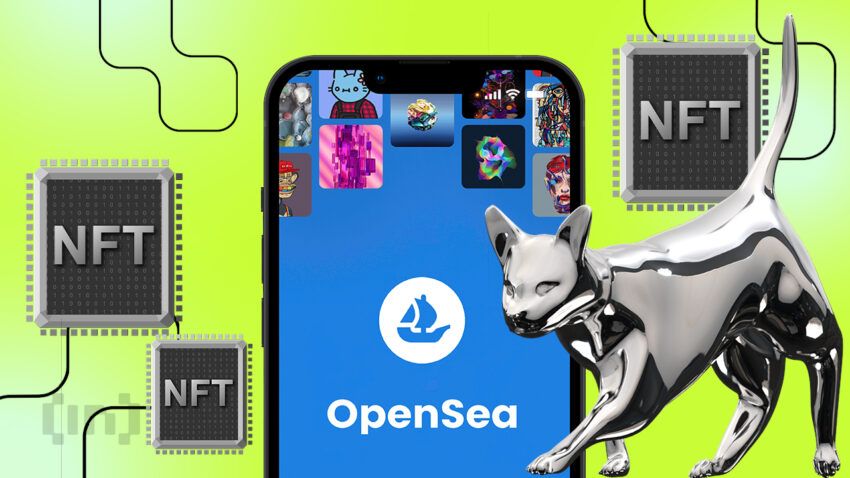
OpenSea was founded in 2017 and has since established itself as a leading platform in the non-fungible tokens (NFT) market. It provides a user-friendly interface for buying, selling, and exploring a wide range of digital assets like art and collectibles. The platform operates on Ethereum and other blockchain networks and attracts both experienced cryptocurrency users and newcomers.
OpenSea’s business model hinges on various revenue streams. Primarily, it earns through transaction fees, charging a percentage on successful NFT sales. On top of that, it may also levy listing fees for creators showcasing NFTs on the platform.
Potential future revenue sources include premium services for enhanced visibility and analytics, partnerships with artists for exclusive content, integration services for other platforms, and licensing of digital assets. As of Jan. 2024, OpenSea primarily relies on transaction and listing fees, with a standard service fee of 2.5% on secondary sales and 2.5% to 10% on primary mints.
6. Consensys

ConsenSys is a prominent software company specializing in blockchain technology. It plays a crucial role in the Ethereum ecosystem by developing tools and applications to support the network’s growth and overall infrastructure.
As of January 2024, the company offers a suite of products and services. This includes the popular Ethereum wallet MetaMask, MetaMask for Developers, Infura, and Diligence (the latter three for developers). In addition, it also offers Linea, Besu, Teku, and Consensys Staking for the broader Ethereum ecosystem.
The company’s focus on Ethereum reflects its commitment to building a decentralized internet and expanding blockchain technology’s applications beyond cryptocurrencies. ConsenSys is one of the most prominent crypto/blockchain firms in 2025 with its wide range of products and deep involvement in blockchain development.
7. Crypto.com

Crypto.com is a cryptocurrency exchange app based in Singapore. It is a trademark of Foris DAX Asia Pte. Ltd is a Singapore-based company subsidiary of Foris DAX MT Limited. The platform has more than 50 million customers in over 90 countries, according to CoinMarketCap data.
These include Europe, the USA, Canada, Australia, Latin America, and some Asian countries.
8. Binance
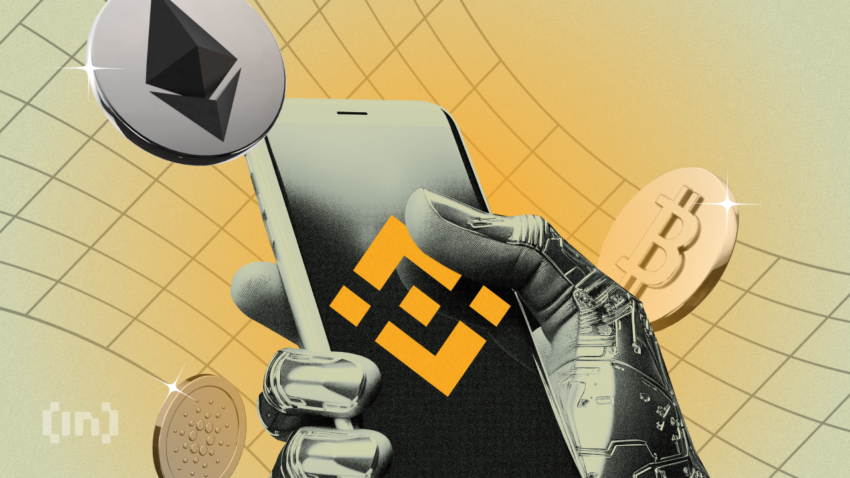
Binance, the undisputed king in the hierarchy of crypto exchanges, was founded in 2017. It has since rapidly ascended to become the world’s largest cryptocurrency exchange by trading volume. Despite all the legal and regulatory challenges it faced in 2023, the company still counts as a formidable force in the broader crypto space.
Binance welcomed over 40 million new users in 2023, marking a nearly 30% increase from the previous year. With this, the company reached 170 million registered users worldwide. As of January 2024, the platform offers 431 assets across 1785 trading pairs, with significant growth coming in services like crypto payments, P2P trading, and Binance Earn.
The company also prides itself on innovations like Binance Square and the Web3 Wallet, which furthered user engagement.
9. LeewayHertz
With over a decade of experience in building enterprise applications, LeewayHertz is a leader in blockchain development with in-depth knowledge of artificial intelligence (AI), the Internet of Things (IoT), augmented reality/virtual reality, and cloud services. The company provides end-to-end blockchain solutions, ranging from blockchain consulting to user experience and design, blockchain development, deployment, maintenance, and upgrades.
The blockchain experts at LeewayHertz have deployed over 80 smart contracts and developed more than 10 blockchain applications.
10. Intellectsoft
Established as a mobile app development company, Intellectsoft is proficient in providing custom software development and consultancy services in technologies such as blockchain, artificial intelligence, the Internet of Things, cloud computing, and augmented reality. For more than 13 years, the company has helped organizations design, develop, and maintain software solutions efficiently.
Offering blockchain development services for both startups and enterprises, Intellectsoft has become a top web3 company.
11. Ripple
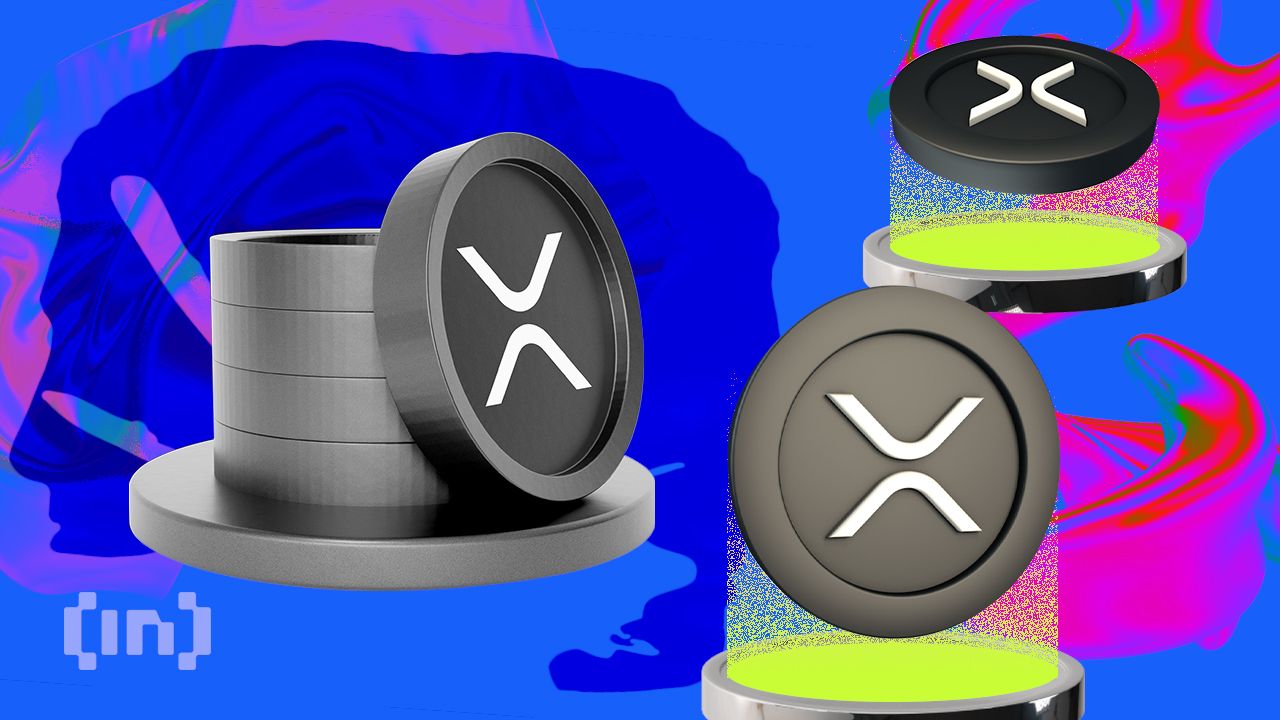
Ripple made significant progress in 2023 following a shift of its focus towards central bank digital currency (CBDC) projects and enhancing the XRP Ledger (XRPL) with new capabilities. The company also scored notable legal victories against the U.S. Securities and Exchange Commission (SEC), including favorable rulings on XRP sales and clearing top executives of charges. Ripple also received recognition from prestigious awards, such as a spot in People’s Magazine’s “100 Companies Who Care” and Fortune Magazine’s top workplaces in technology, along with winning the UK’s PAY360 Award.
Ripple’s XRP price increased by 77% in 2023, influenced by these successes. The company’s involvement in numerous CBDC initiatives marked a strategic shift from its traditional focus on payment solutions. It also secured several strategic partnerships for developing government stablecoins in various regions, including “Palau, Bhutan, Montenegro, Hong Kong, and others.”
Many Central Banks now rely on third-party platforms for minting, managing, and transacting CBDCs. Today, the Ripple team is working with the governments of Palau, Bhutan, Montenegro, Hong Kong, and others to manage the full CBDC lifecycle.
– Ripple team, via Ripple Labs blog
2023 was also notable for the XRPL as it attracted a growing community of web3 developers. The impending activation of automated market maker (AMM) functionality in the XRPL is a significant advancement, considering that it can transform Ripple into a comprehensive DeFi ecosystem.
12. Blockchain Intelligence Group
Blockchain Intelligence Group is a leading company that specializes in crypto investigations and risk management. The firm aims to provide an optimum solution for reducing the risks associated with cryptocurrency transactions, detecting illicit transactions, and combatting fraud on the blockchain.
“Our tools have been built by U.S. government investigators and experts. We deliver blockchain intelligence and stand by it in the courtroom.”
Blockchain Intellegence Group
Top non-crypto companies making use of decentralized technologies

The following are all leading companies that are successfully using blockchain technology within their operations.
1. Walmart
Walmart utilizes blockchain technology to add transparency to the food supply ecosystem by digitizing the entire food supply chain process. Thanks to Hyperledger Fabric, the company can make the process transparent, traceable, and reliable. Employees can track products for their origin, and it only takes a few seconds to scan dozens of products to know where the food has come from and where it has been stored.
Blockchain helps Walmart employees track the origin of food in a few seconds instead of days. It reduces paper waste, automates the entire process, and increases supply chain transparency.
2. Ford
In late Jan. 2020, it announced that Ford Motor Company is preparing to utilize blockchain technology to trace cobalt supplies, an essential ingredient for electric car batteries. Ford, with IBM, plans to track its raw materials like cobalt from the suppliers.
Utilizing blockchain technology, the motor company wants to get authentic products. When cobalt is mined, it will get on the ledger, and then the company can track where it’s going.
3. De Beers
De Beers, the world’s biggest diamond producer by the value of its gems, also uses blockchain technology to track every natural diamond from the mine to the retail counter. The blockchain platform known as Tracr helps in verifying the authenticity of diamonds and ensures they are not from conflict zones, where gems may finance violence.
Bruce Cleaver, chief executive of De Beers, noted that Tracr can track diamonds across the supply chain, offering asset traceability assurance in a way that was not possible before.
4. UPS
The United Parcel Service (UPS) is another company using blockchain technology in the supply chain. In Nov. 2018, this logistics giant joined the blockchain in Trucking Alliance (BiTA) to increase transparency in the supply chain among all organizations.
In Mar. 2019, UPS and e-commerce Technology Company Inception collectively rolled out a blockchain-powered platform to enhance merchant supply chains. Apart from that, UPS has also filed a patent for a blockchain system that would store package destination, movement, transportation method, and other crucial information, thus ensuring efficiency and transparency.
5. FedEx
FedEx, which is one of the largest shipping enterprises, sees the blockchain as an innovative way to guard its chain of custody. The enterprise has joined BiTA and launched a blockchain-powered program, using the technology to track its shipments. Implementing blockchain technology enables FedEx clients to receive reliable information more quickly and its customer service team to answer queries promptly and with greater accuracy.
Top crypto companies are paving the way in 2025
This list represents just a few of the trailblazing top crypto companies offering web3 services and utilizing blockchain technology in 2024. Note that as the bear market eases, there is plenty of opportunity for smaller entities to compete with the larger players — the industry is still young, and the top crypto companies of 2030, or even 2025, may not yet be born. Meanwhile, increasing numbers of non-crypto companies utilize blockchain technology in their operations and supply chains. In 2025, the future is decentralized!
Frequently asked questions
What are the top 10 crypto companies?
Which is the biggest crypto company?
Disclaimer
In line with the Trust Project guidelines, the educational content on this website is offered in good faith and for general information purposes only. BeInCrypto prioritizes providing high-quality information, taking the time to research and create informative content for readers. While partners may reward the company with commissions for placements in articles, these commissions do not influence the unbiased, honest, and helpful content creation process. Any action taken by the reader based on this information is strictly at their own risk. Please note that our Terms and Conditions, Privacy Policy, and Disclaimers have been updated.




